As an autistic, I know first hand how my communication abilities are different from the neuro-majority people around me. Most people do not understand my differences because I can speak. On the surface my communication abilities appear normal. This make it very difficult for people to understand when I need accommodations they are just that – accommodations – not personal preferences.
For example, even though I can speak to crowds of thousands of people my neurology does not permit me to engage in telephone conference calls in a meaningful way. The most I can do is listen, but after a few minutes I cannot process the words of the several different voices I can hear over the phone line. Actually speaking on a conference call is not something I am able to do.
I have found some online video chat alternatives that do work for me and allow me to participate in national work groups. It is necessary for me to see the people and to have the person talking visually highlighted so my brain can process the words that are being spoken. Also, I need to be able to type my words because I am not able to access meaningful spoken words when tracking and processing the talking of the group. Group Skype and Go To Meeting are two platforms that allow me to participate.
It is difficult for people to understand that a person who speaks internationally would find it impossible to participate in a telephone conference call. I totally get this because I too find it difficult to understand! Even though I have lived in my body for more than 50 years now, I still do not always understand it, but have learned to believe it and work with it, outsmarting the difficulties of autistic neurology to be and do what I want in this world.
My communication abilities and efforts are what they are whether you chose to believe it or not. I understand and can say this because for many years I did not believe my own body could betray me so often. However, I discovered that not believing in it never once changed it.
At one time people did not believe the world was round. They believed it was flat. The erroneous belief did not change the facts. Today when you have erroneous beliefs about me it does not change who I am. It does not change what skills and abilities I am able to access in the moment. Unfortunately, the beliefs of the majority, erroneous or not, often determine my opportunities.
This is because the majority holds the power in bestowing upon the minority. The assumed power of majority makes you superior, whole and right while making me less than, broken and wrong. You and I do not decide these things, but they are the societal assumptions we live by. In fact, you don’t even have to think about it, but if you do – whether you like it or not – being part of the majority gives you power over the minority. How do you use your power?
Do you honor autistic difference or do you insist your child do things exactly the way other children do them?
Do you try to find accommodations that will allow your child to participate in what you ask of him or do you express displeasure in or discipline him for failure to perform a task he has previously mastered assuming it is willful behavior?
Do you believe your child cannot do something when his access to skills and abilities are intermittent or do you assume that once a skill is performed your child is being stubborn or resistant if he cannot perform it consistently?
Many adults fear that if they listen to their child’s behavior or words they will be “giving in” and spoil their child. They fear their child may get away with something. After all, how do you know when it is the autism and when it is behavior? In my experience it is rare that it is only behavior. Instead, it is most often a function of autistic neurology – the way a person with autism understands and interacts in the world.
But even if you remain skeptical, the least dangerous assumption is to believe it is the autism. If you assume it is the autism and you are wrong your child may “get away with” some behavior until you get it figured out. If you assume it is willful bad behavior and you are wrong your relationship of positive regard and trust with your child will have suffered. Your child needs you to be on his side, to believe in him. When you don’t believe in him you effectively silence him.
Just because majority power has been used to silence autistics since the beginning of time, especially when it comes to our communication differences, doesn’t mean we need to continue on this course. People changed their belief about the world being flat when they saw it was not true.
I have hope that people will someday change their beliefs about how autistics communicate when they see what they believe is not the truth. It is why I am writing this blog! In the meantime, please know all autistics are human beings – whether able to speak or not we communicate, we have feelings, we have empathy, and just like you we need to love and to be loved – whether you believe it or not.
REFERENCES
Endow, J. (2013). Painted Words: Aspects of Autism Translated. Cambridge, WI: CBR Press.
Endow, J. (2009). Paper Words: Discovering and Living With My Autism. Shawnee Mission, KS: AAPC Publishing.
Endow, J. (2009) The Power of Words: How we speak about people with autism spectrum disorders matter! Shawnee Mission, KS: AAPC Publishing.
 JUDY ENDOW, MSW
JUDY ENDOW, MSW
Judy Endow, MSW is an autistic author, artist and international speaker on a variety of autism related topics. Read more from Judy on Ollibean here and on her website www.judyendow.com.

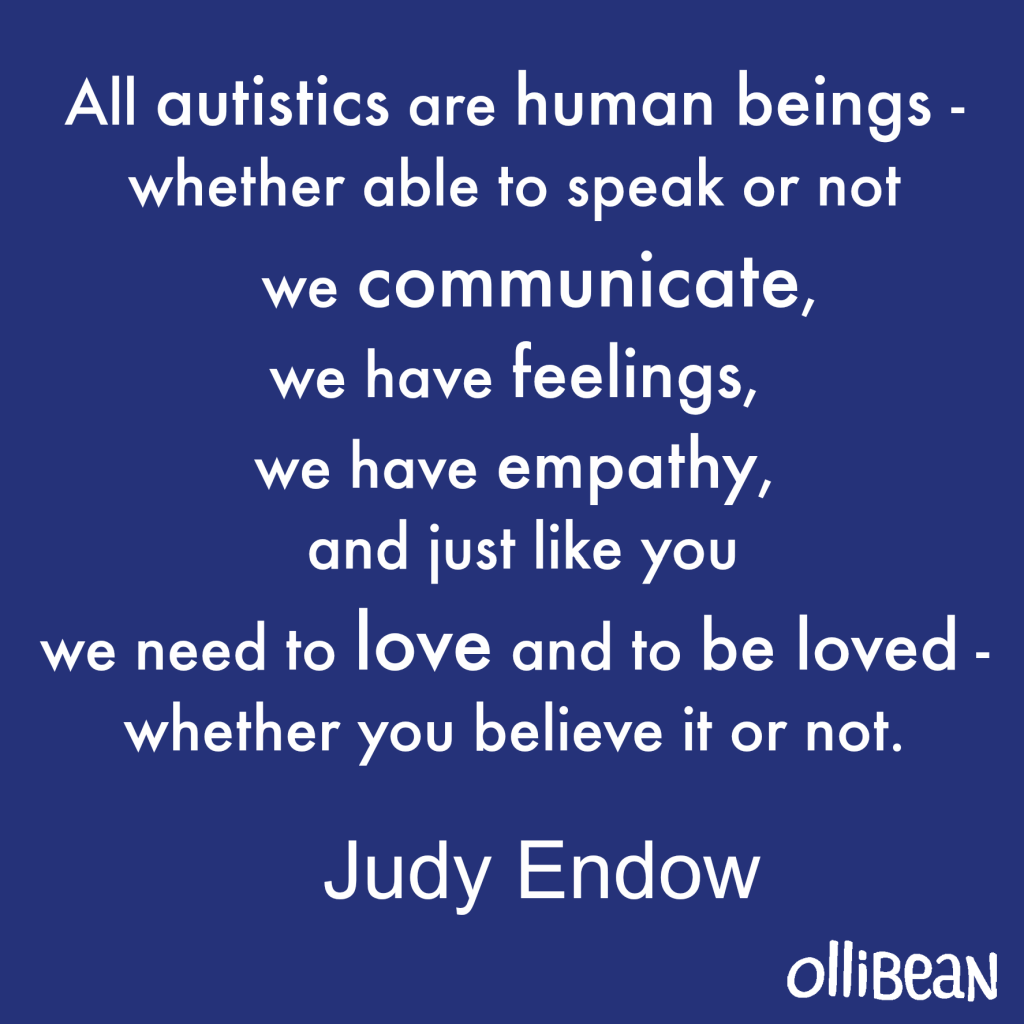
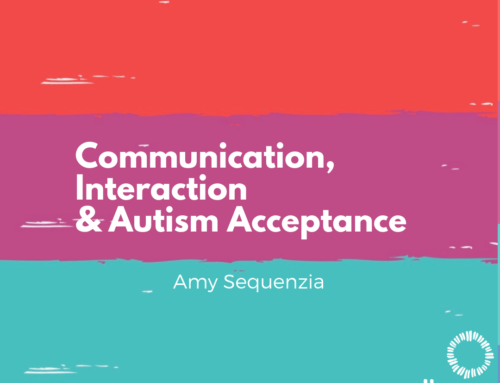
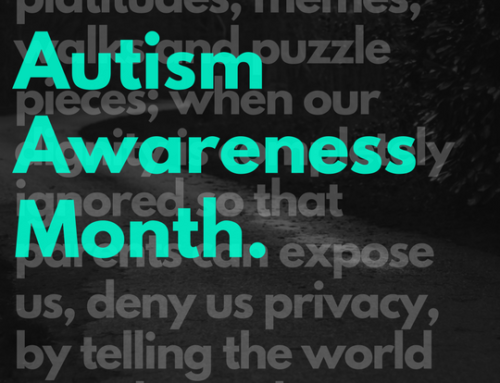
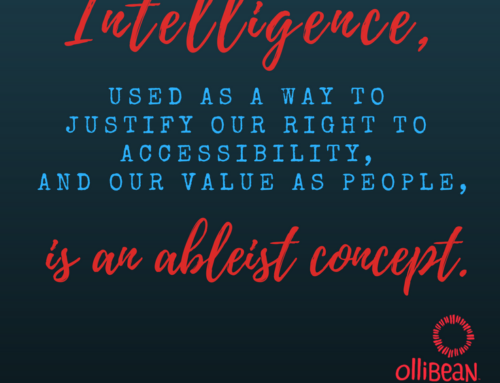
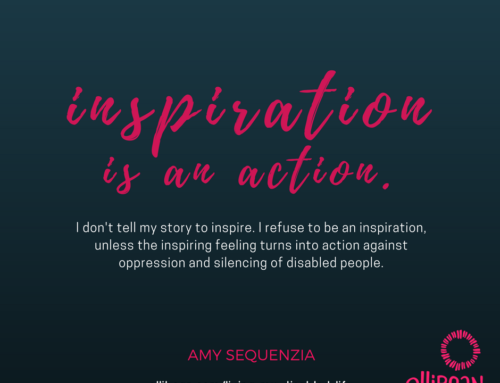
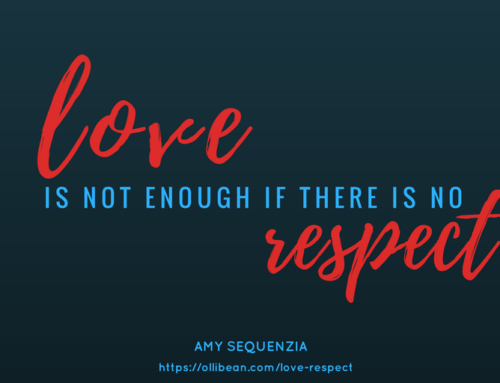
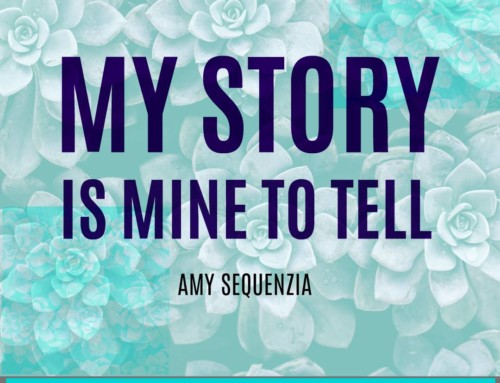
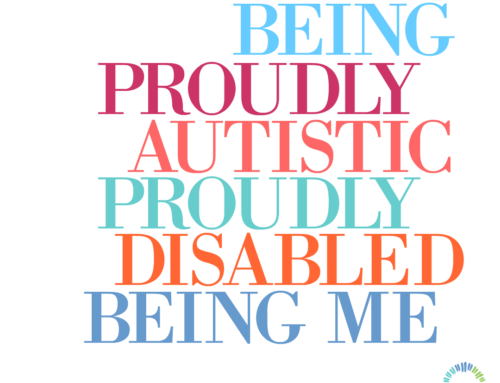
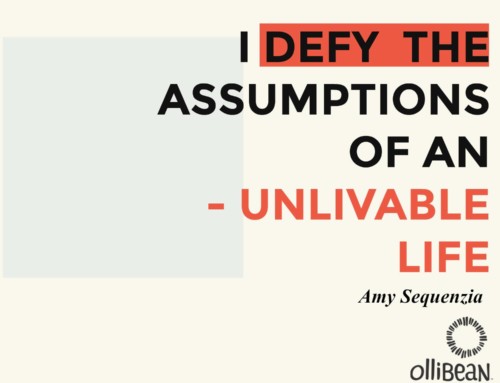
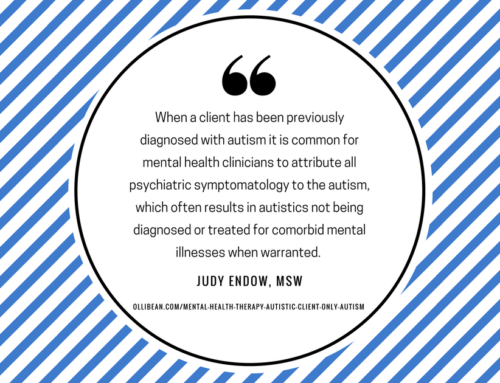
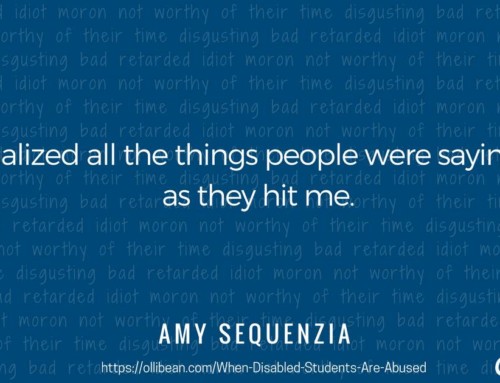

So important! Thank you Judy!
Being a mother of 5, ages 29 to 7years old , with my youngest being in a gray area on the autism scale, what you have said of behavior has just made my day. I have done nothing different in parenting with this child as I have with my other children. When my son was two he was just out of control with behavior some people tried to say it was terrible twos. I said no it is more , because this child is beyond hyper, he had violent tantrums where he would hurt himself and others. After going to his pediatrician and he had this major tantrum in the office , the doctor sent me to the emergency room , my son was too young for a psychiatric evaluation. But was given a 800 number to call and within 90 minutes a social worker showed up and agreed with me , that what he was doing was beyond normal. But from there I have been going down a path of different diagnosis being thrown at me. But in my heart I believe he may have autism , they have said he was in a gray area , but no one seems to want to diagnosis him with it. Instead behavior issues , bipolar mix, oppisitional defiant, among other labels being thrown at him. I think because he speaks good, makes eye contact, and appears normal, they base alot on that , instead of what i see daily. I just want him diagnosis right so i can get him the help he needs to help him in the right direction. I just do not believe it is just a behavior issue with him , it is more. I will keep fighting for him, I just found a new psychiatrist and the first thing she asked me is he autistic, I was like do you think so? She said he showed signs of it . I have always thought so. But here is the tricky part, the doctor whom can do the testing only takes insurance and certain ones. I have public assistance ( the medical card) He does not take it . I just hate these loopholes in the system when it comes to properly diagnosis a child. Im just fed up with everything. I enjoyed reading your article and it really shed light on what I had already thought. Thank you
Thank you for this! I see evidence of the things you describe everyday in my work as a neurologic music therapist. Our new school is helping to dispel the myths and bring communication to the non-verbal students who have waited far too long to be understood as thinking people. Check us out: http://www.facebook.com/optimalrhythms (501c3).
Thank you, Judy! I just found your blog and will read all I can! With three teens in the spectrum, I am always looking for understanding and coping skills for us all.
Oh my goodness. Thank you for this. I’m autistic, 46 years old, and quite a gifted writer and editor. But in-person (and especially telephone) communication is a huge problem for me. No one understands.